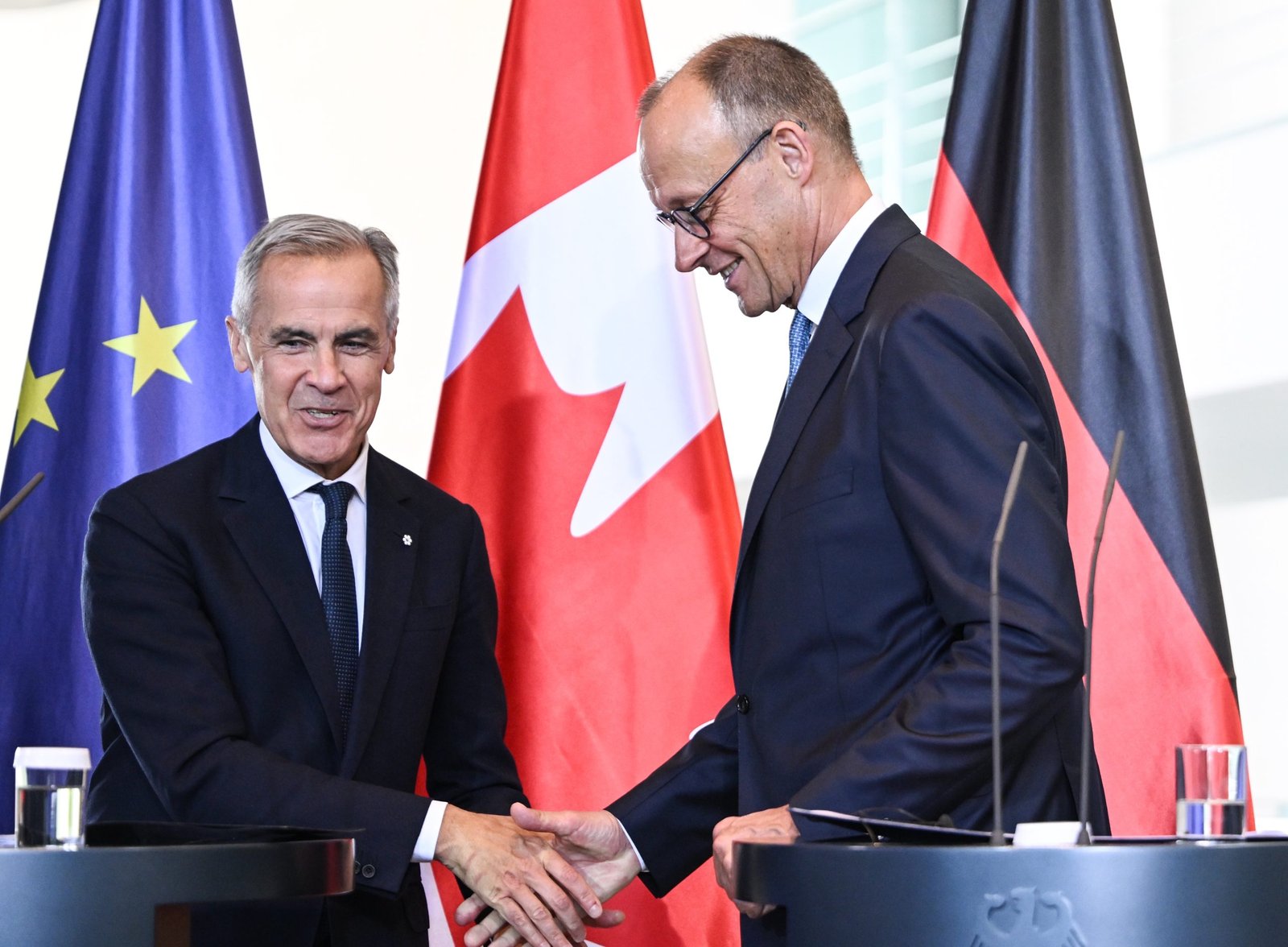Germany and Canada announced on Tuesday that they would step up cooperation on extracting critical raw materials to reduce Berlin’s dependence on Beijing’s supply chains.
The move is Germany’s latest step to diversify away from China, as Chancellor Friedrich Merz has taken a tough public line on Beijing and supports Brussels’ ‘de-risking’ strategy, while avoiding a stand-off between the intertwined economies.
China remains the dominant global supplier of critical raw materials and, since April, has imposed stricter export controls on several rare earth elements, exposing further supply chain vulnerabilities.
“Canada can play a role in accelerating that diversification for Germany and for Europe,” Canadian Prime Minister Mark Carney said.
The agreement fits into what Ursula von der Leyen once dubbed a “perfect match”. Canada boasts 34 raw materials that are classified as critical, of which 26 are mined domestically. Twenty-four of these 34 raw materials are also considered critical by the EU, including 13 strategic ones.
Rare earths are used in a wide range of products, from electric car batteries to wind turbines and computer hard drives.
Tuesday’s declaration underscores the importance of critical minerals not only for economic growth but also for defence applications, the clean energy transition, advanced manufacturing, and clean technology production.
“This is a collaboration that I very much welcome and that we support,” Merz said.
The new pact builds on existing frameworks, such as the EU-Canada Strategic Partnership on Raw Materials, established in June 2021, and comes as the bloc steps up efforts under the Critical Raw Materials Act (CRMA), which entered into force in May 2024.
Ottawa and Berlin are also planning to strengthen defence ties, with Carney visiting Kiel-based ThyssenKrupp Marine Systems, a major producer of military vessels and submarines, later on Tuesday.
Canada, seeking to replace its ageing submarine fleet, announced on Tuesday that it had shortlisted two bidders: the German-Norwegian consortium or a South Korean producer.
Merz also welcomed Canada’s interest. “If Canada were to join [the submarine partnership], it would send a strong signal” about maintaining collective security.
(mm)





